The Department of Medicine at UC San Diego is committed to providing a fertile environment that nourishes faculty imagination and potential and mentoring new investigators as they apply for funding to establish their own laboratories and connect creatively both within and beyond UC San Diego and its partner institutions.
The Junior Faculty Mentoring Program is designed to provide a network of mentors, resources and opportunities to help our newest faculty integrate into the Department and campus culture and further, to provide a sense of community, support and accountability while addressing the unique needs in research/career planning and efforts to achieve a positive work/life balance. Through ongoing seminars and frequent networking events, we aim to serve as a clearinghouse for existing resources, tips to navigate through University complexities and support to balance responsibilities in research, teaching, clinical activities and service.
Vision
The Faculty Mentoring Program will help faculty realize personal and professional goals.
Mission
To fill in the gaps of resources of faculty development already available at UC San Diego.
Overall Goals
Mentoring
Establish mentoring relationships
Brown Bag Workshops
- Familiarization with the campus and its environment
- Career planning and advancement
- Achieving work-life balance
- Develop visibility and prominence within the profession
- Mentor the Mentor
Department Mixers
- Introduction of mentors/mentees
- Networking with other faculty, leadership and staff support
| Council Director | Council Administration |
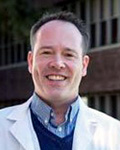 |

|
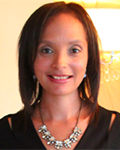
|
Program Director (619) 543-8180 | Michele Fraser
Program Administrator
(858) 246-0935
mlfraser@ucsd.edu | Christine Johnson
Program Co-Administrator
(858) 246-0933
clj006@ucsd.edu |
Council of Mentors
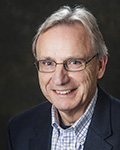 Gerry Boss, MD
Gerry Boss, MD
Professor of Medicine
Director,
Physician-Scientist Training Program
Associate Director,
Clinical & Translational Research Training (CTRI CREST) Program
Email:
gboss@ucsd.edu
Teaching is both a challenging and enjoyable part of academia. Even after having given lectures and presentations for over 35 years, I still get nervous before talking in front of a large group. But, although I get a bit nervous, I thoroughly enjoy teaching. When I teach about a topic is when I find out how well I really know the topic. So, teaching is a very important part of academic life, because it both humbles and enlightens. And, if you do a reasonably good job, it can also be extremely gratifying. It’s important, therefore, to teach and not to shy away when asked.
My broad areas of research are signal transduction and cell metabolism. I completed two separate two-year post-doctoral fellowships, one in a purine metabolism laboratory here at UCSD and one in a folate/vitamin B12 metabolism laboratory at the Massachusetts General Hospital. Recently, I have become involved with drug development, taking a drug from the bench to (hopefully) the bedside. I would consider my five most significant scientific contributions to be: (1) defining the regulation of purine nucleotide synthesis, particularly by nutrients; (2) demonstrating nitric oxide regulation of gene transcription and vitamin B12-dependent enzymatic reactions; (3) developing a quantitative assay for measuring the activation state of Ras family proteins and applying it to human cancers; (4) developing the cobalamin (vitamin B12) analog cobinamide as a new antidote for cyanide and sulfide poisoning; and (5) developing a cobinamide-based cyanide sensor for field use.
Service is generally considered one of the least glamorous parts of academic life that can actually detract from one’s ability to do other activities. However, I have actually found many committees to be quite rewarding, particularly campus-wide committees where one interacts with artists, historians, musicians, physicists, etc. I wouldn’t recommend too much service as an Assistant Professor, but as one moves through the system I think it is important to participate in committees. It was by having served on the Committee on Academic Personnel (CAP), and even having chaired CAP, that I really learned how the promotion process works, and by having been Chair of the Academic Senate that I learned how the general campus functions.
I am a general internist, having completed an internal medicine residency at The Johns Hopkins Hospital. Although I see patients only one-half day a week, I truly enjoy clinical medicine, and I feel very fortunate that I have been able to continue to see patients throughout my academic career. I highly recommend combining clinical medicine with scientific research; they complement each other well.
As for so many things in life, the key to success in academia is perseverance. There were many times early on in my career that I had doubts about my suitability for an academic life—most notably when a manuscript was rejected or a grant application was torn apart—but, after a period of despair, I picked myself up off the floor and tried again. Whether I have been successful is debatable, but I’m still here after more than 35 years.
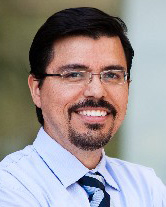 Luis R. Castellanos, MD, MPH
Luis R. Castellanos, MD, MPH
Director of Diversity in Medicine and Faculty Outreach
Department of Medicine
Associate Clinical Professor
Division of Cardiology
lrcastellanos@ucsd.edu
As a full-time UCSD Cardiology Attending, I enjoy teaching medical students (2nd year UCSD School of Medicine - cardiac physiology course), residents in the general cardiology clinic and cardiology fellows during daily in-patient cardiology rounds. Also, as Director of MED 426 - Clinical Cardiology Clerkship elective, I stay in contact with UCSD and visiting medical students from all over the world.
My research interest focuses on health outcomes and inequities involving racial and ethnic minority groups. Most recently, I was awarded a research grant from the Clinical and Translation Research Institute to study the effectiveness of a home-based cardiac rehabilitation program in patients with coronary heart disease who live in rural communities. I’ve been fortunate to present my research projects at national conferences such as the American Heart Association, American College of Cardiology and the National Hispanic Medical Association annual meetings in order to advocate for improving cardiovascular heath of vulnerable populations.
My service to the local community and the University includes being an active member of the UCSD clinical integrative network and clinical quality committees, such as the UCSD Heart Failure Task Force; this allows me to continue to improve the health of members of my communities who suffer from heart disease. I was recently appointed Director of Diversity in Medicine and Faculty Outreach for the UCSD Department of Medicine. One of my goals is to increase the recruitment, retention and advancement of diverse medical professionals, including internal medicine residents and faculty, from underrepresented in medicine minority (URM) groups within the Department of Medicine.
Several months a year, I attend the UCSD inpatient Hillcrest Medical Center Cardiology wards and inpatient Cardiology Consult service. While on service, I am on-call 24 hours a day for admissions, emergencies such as STEMIs, urgent consults and cardiac procedures. Part of my clinical activities at UCSD include traveling on a regular basis to the Imperial Valley, where I help provide cardiac care to underserved populations from El Centro, Brawley and neighboring communities.
In order to navigate the fast-paced academic environment, I have found that perseverance in pursuing in your ideas and goals while having the flexibility to adapt to change is an important tool to have in one’s armamentarium. Also, friends and colleagues who provide constructive feedback regarding work can help keep things in perspective. Finally, I’m grateful to have awesome co-workers in an amazing job and that together, we provide excellent cardiovascular care to members of our communities.
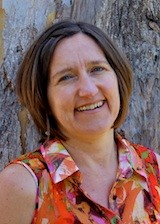 Chantal Darquenne, PhD
Chantal Darquenne, PhD
Department of Medicine
Adjunct Professor
Division of Physiology
cdarquenne@ucsd.edu
As a non-clinical faculty member, my teaching activities focus on classroom lectures and small discussion groups in the preclinical years of the School of Medicine curriculum, and on mentoring students, interns and postdoctoral fellows in the laboratory. I also give lectures in other UCSD departments (Pediatrics, Bioengineering) and at international meetings. Teaching often requires you to approach a topic from several different angles to fit the learning style of the students. Although sometimes challenging, this can be a highly rewarding experience.
I came to UCSD in 1995 as a postdoctoral fellow and have since managed my way up to the full professor level. My research focuses on three main areas: the transport and deposition of inhaled aerosols, the distribution of lung ventilation in health and disease, and the dynamics of upper airway mechanics. I have combined lung physiology with engineering approaches to address my research interests. My most significant scientific contributions have been in aerosol-related research mainly in 1) the study of aerosol inhalations in humans in altered gravity (having flown numerous times on the NASA Microgravity Research Aircraft), 2) the development of numerical models that simulate the transport and deposition of aerosols in the lung, and 3) the development and application of a rat model to determine aerosol deposition in-situ for various exposure conditions using Magnetic Resonance Imaging. Most of my research has been funded by the NIH and by NASA. I have a lot of experience writing successful (and unsuccessful) grant applications. Over the course of my career, I have also served on numerous grant review study sections (NIH, NASA, EU research council, Swedish National Space Board, Belgian Funds for Scientific Research).
University service is a great way to learn how the School functions. I have served in several capabilities over the years. Two of the most rewarding contributions have been as a member of the School of Medicine Recruitment and Admission Committee (RAC, 2001-2008) and as a member of the Department of Medicine Committee on Appraisals and Promotions (DOMCAP, 2008-present). My years on DOMCAP have given me great insights in the promotion process in the various tracks the School offers. Outside the University, I am actively involved with scientific societies. I have served on the program committee of the Respiratory, Structure and Function (RSF) assembly of the American Thoracic Society (ATS). I have also been active with the International Society for Aerosols in Medicine (ISAM) where I have held several leadership positions, currently serving as the General Secretary of the Society.
There is not one but several ways to a successful career in academia and the challenge is to find the right path for you. Finding a good work-life balance is essential. I would be happy to share my own experiences in helping you shaping your own path to success.
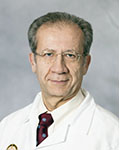 Francis B. Gabbai, MD
Francis B. Gabbai, MD
Francis B. Gabbai, MD Professor and Vice Chair for VA Affairs
Department of Medicine, UCSD and Chief, Medicine Service
VA San Diego Healthcare System
View Academic Profile
fgabbai@ucsd.edu
As a UCSD faculty member since 1987, my teaching activities have been recognized by numerous awards and honors including the House Staff Teaching Award and the Outstanding Clinician Educator Award both in 2005, and nominee by both the second and third year classes for both the 2010 and 2011 Kaiser Excellence in Teaching Award, and in 2013 the second year class Nominee, Kaiser Excellence in Teaching Award. In 2011 and 2013, I received the UCSD Department of Medicine Chief Residents’ Teaching Award. In 2003, I received the Excellence in Leadership Award from the VA San Diego Healthcare System. My teaching activities encompass all levels within the School of Medicine including undergraduate medical education, graduate medical education and mentoring of junior faculty.
- SOM 239 (Renal System II). I was the block director for this course from 2012-2016 and continue participating in teaching. This is a two-week block with lectures and small group case discussions, the latter designed to reinforce the concepts presented during the lecture. This course has been very well received by the students.
- I have taught medical students as part of their Medicine 401 Clerkship. During my ward attending rotation, I was involved with teaching three to six medical students as part of their rotation in the VA inpatient wards.
- At the postgraduate level, I am involved with teaching interns and residents in the Internal Medicine training program. I attend regularly Morning Report, and I am also involved in supervising the house staff while I serve as an attending in the Renal Service at the VA.
- I am also involved in teaching Nephrology Fellows both in the inpatient setting as well as mentoring them when they participate in laboratory activities.
In the experimental setting, I have been involved in micropuncture studies evaluating glomerular hemodynamics and renal function in models of acute kidney injury, experimental diabetes, hypertension and various models of glomerulonephritis. These studies have focused on the role of nitric oxide and angiotensin II.
My research interests focus primarily on chronic kidney disease and hypertension both from the experimental as well as the clinical perspectives, and I have numerous publications in peer-reviewed journals. I was the principal investigator for the San Diego Center of the African American Study of Kidney Disease Cohort Study (AASK) and continue to be involved with the publications of the AASK Cohort as well as several research projects relating to ambulatory blood pressure measurements in patients with chronic kidney disease.
I am Professor of Medicine at the University of California, San Diego and have served as Chief of the Medicine Service, VA San Diego Healthcare System, and Vice Chair for VA Affairs, Department of Medicine, UCSD, since August of 2007. Previously, from 1994, I was Chief of the Nephrology Section at the VA San Diego Healthcare System and from 2004-2007 Associate Dean for Graduate Medical Education at UCSD.
Aside from numerous committees at the VA San Diego Healthcare System including the Peer Review Committee, Medical Executive Committee, Professional Standards Board, Inpatient Care Council, Affiliation Partnership Council to name a few, I am a member of Department of Medicine committees as well including the Medical Staff Executive Committee at UCSD, the Board of Governors, as well as various search committees for recruitment of division heads and other key academic personnel.
Clinical
I received my Medical Degree from the Universidad Nacional Autonoma de Mexico and Master of Science conferred with the Gabino Barreda Award there as well. I was awarded a postdoctoral fellowship at the Fogarty International Center, National Institutes of Health from 1984-1985. In 1995, I was elected a member of the National Academy of Medicine in Mexico.
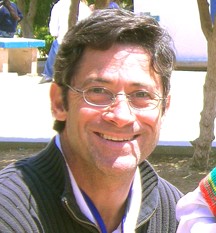 Richard Garfein, PhD, MPH
Richard Garfein, PhD, MPH
Department of Medicine
Professor
Division of Global Public Health
rgarfein@ucsd.edu
Since coming to UCSD in 2005, I have directed 2 major courses and 1 elective course for medical student; lectured in numbered courses for graduate students; served as chair and committee member for masters students’ theses, doctoral students’ dissertations and medical students’ Independent Student Projects; and mentored graduate and undergraduate students doing independent studies. Regarding numbered courses in the Medical School, I directed the core Epidemiology and Biostatistics course, which was converted to the Epidemiology, Biostatistics and Medical Informatics course (SOM 243) that is currently taught to the 135 second year medical students. I have also directed the VIIDAI – Baja California Clinic elective (FPM 244) since 2005, which provides medical and graduate students with an international field experience in Mexico twice a year. These teaching and mentoring experiences have given me insights into teaching in multiple capacities with a large range of students with varying learning styles and needs that I can share with junior faculty.
I have over 26 years of experience conducting observational and interventional research on subjects ranging from describing the epidemiology of HIV and HCV infection among people who inject drugs, to designing and evaluating behavioral interventions to prevent these infections, to evaluating molecular diagnostic assays for rapid detection of antibiotic resistant tuberculosis, to developing and evaluating a mobile phone application for remotely monitoring anti-TB medication adherence (video directly observed therapy). These studies have taken place in the US and abroad, and led to over 160 peer reviewed publications and over 170 peer reviewed conference abstracts.
These studies were funded by grants and cooperative agreements from the NIH, CDC, and private foundations. Prior to joining the UCSD faculty, I was a project officer at the CDC, where I learned the funding process from the funder’s perspective. I am currently a standing member of an NIH study section (IRAP), and have served on ad hoc review committees for the NIH, CDC and other funding agencies. These experiences can be shared with junior faculty mentees to help them understand the ins and outs of the funding process.
I have served on committees at the division, department, school and university levels. For example, I have served as the chair of my division’s Committee on Appointments and Promotions (CAP) and a member of the Department of Medicine CAP, giving me insights into the academic review process. I was a Steering Committee Member for the UCSD/San Diego State University Joint Doctoral Program in Global Health, the School of Medicine Electives Curriculum Working Group, and the UCSD International Staff Council.
I also serve on committees outside of the university. Locally, I am an Executive Board Member (Mayoral Appointment) on the San Diego Clean Syringe Exchange Program (CSEP) Facilitation Committee; nationally, I am a Publication Committee Member for the CDC Tuberculosis Epidemiologic Studies Consortium; and internationally, I am a member of the World Health Organization, Global Task Force on Digital Health for Tuberculosis.
I have had excellent mentors throughout my career who have helped me to navigate the process of becoming an independent scientist. It is my pleasure and duty to share what I’ve learned with the next generation of researchers so they may continue my predecessors’ legacy of scientific pursuit.
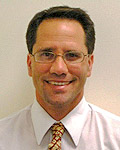 Charlie Goldberg, MD
Charlie Goldberg, MD
Clinical Professor
Division of General Internal Medicine
Associate Director
Internal Medicine Residency Program
cggoldberg@ucsd.edu
I have been at UCSD School of Medicine since 1998. During this time, I have taught across all years of the curriculum, with a focus on clinically related skill development (physical exam, clinical reasoning, communication, etc.). In addition, I am the Associate Program Director for the Internal Medicine training program. Covering the full breadth of the medical education spectrum provides me with a unique perspective, allowing me to use lessons learned in one domain to inform actions in the other.
My scholarly activities revolve around innovations in curriculum design, extending from pre-clinical medical student education through upper level residents. I use any/all formats (lecture, simulation, web sites, apps, pbl, real patients, faculty development, etc.) to achieve educational ends. The common theme that connects these activities is a desire to create approaches and products that engage and teach in a practical and readily applicable fashion. I also really enjoy collaborating with others to create the best possible learning tools.
I have worked with an array of groups at the medical school, residency program, and hospital/clinic level. In general, I try to join committees that have a meaningful impact and expose me to clinicians/teachers whose perspectives and experiences provide me with interesting/novel insights. It's additionally helpful if the groups are pleasant and work well together.
As an Internal Medicine physician, I have practiced in both the inpatient and outpatient settings. My work occurs at the VA and I very much enjoy patient care, in particular when coupled with educational opportunities.
My course to date has been very affected by lessons learned during my early training. Following medical school, I chose to pursue a career in Urology. After > 2y, I decided that this wasn't the right path. So I stopped and took time off, eventually deciding that Internal Medicine was a much better fit. This experience reinforced the importance of taking responsibility for my choices - and that if I was heading in the wrong direction, it was up to me to recalibrate and 'own' my decisions. I used the lessons learned to forge an early career that was part time (~3/4 FTE). This enabled me to maintain control over some portion of my work environment while also participating fully in life with my family. Trading $s for "awake time" also created space so that I could think about and develop projects that were meaningful to me (but not necessarily supported by the University). As I developed a successful track record, I was able to gain full financial support for all of my efforts (clinical, admin and teaching).
I also found that getting mentorship can be challenging, particularly when you need to make radical changes. As such, I've come to believe in the "chimeric mentor" model - where you approach different people to provide different types of guidance at different points in your career.
I am also incredibly lucky to have 2 wonderful kids (Aaron 13, Max 12) and a very supportive wife (Teddy) - who is a pediatrician that has carved out a very interesting career of her own.
Simerjot K. Jassal, MD, MAS, FACP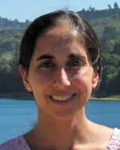
Clinical Professor
Division of General Internal Medicine
Department of Medicine
Director,
Internal Medicine Residency Program
sjassal@ucsd.edu
The opportunity to teach and interact with trainees at all levels is part of what makes me most fulfilled in my career! As the Program Director for the UCSD Internal Medicine Residency program, I have to opportunity to interact with residents and medical students both in the clinical and classroom settings. One of the best things about my job is that I get to attend every teaching conference that happens in our training program. I also have the chance to interact with pre-clinical medical students as a Problem Based Learning tutor, and a preceptor for Observed Structured Clinical Exams. I joined the faculty at UCSD in 2002 directly out of my residency training as a primary care doctor at the VA; one of the main factors in choosing this job was the plethora of opportunities to interact with students and residents. I have not been disappointed!
I have a scholarly interest in the epidemiology of chronic kidney disease and the role of markers of kidney dysfunction in bone and cardiovascular outcomes. My mentor, Dr. Elizabeth Barrett-Connor, has allowed me to work with data from the Rancho Bernardo study, a longitudinal cohort of older adults in a nearby suburb. We now contribute to meta-analyses as part of the Chronic Kidney Disease Prognosis Consortium. I also have interest in medical education research and promoting resident wellness.
Most of my service is related to medical education, with the vast majority focused on the UCSD Internal Medicine Residency Program. As a Program Director, I am a member of the Graduate Medical Education Committee. I also serve on the Department of Medicine Committee on Appointments and Promotions and the School of Medicine Standing and Promotions Committee. I serve on the Southern California Regional American College of Physicians’ Governor’s Council.
For the past 14 years, I have had the privilege of serving as a primary care doctor to a panel of lovely patients at the VA San Diego. The longitudinal relationships with my patients and their families and the opportunity to know them through the course of their lives, in times of health, sickness and sometimes through to the end of their lives, are among the most rewarding aspects of my career. I also spend several weeks each year attending on the inpatient medicine services at the VA San Diego and UCSD Medical Center in Hillcrest.
Medicine is a wonderful career path and UCSD is a terrific place to pursue your passions! I have found the environment here to be incredibly positive and supportive and I look forward to the opportunity to “pay it forward” through any efforts to foster the next generation of our faculty.
 Kim M. Kerr, MD
Kim M. Kerr, MD
Clinical Professor and Vice Chief
Division of Pulmonary, Critical Care and Sleep Medicine
Director, Medical Intensive Care Unit
Jacobs Medical Center
kmkerr@ucsd.edu
Much of the teaching I do is at the bedside on rounds, predominantly with fellows since I am based in La Jolla on services that only occasionally have residents. However, I also participate in conferences that involve not only faculty and fellows, but residents and students and I lecture nationally and internationally on topics related to pulmonary vascular disease. I have collaborated with several societies to develop on-line and on-site (at national meetings) CME activities.
Most of my research has been in clinical trials in the ICU (acute lung injury, sepsis, biomarkers) and with the Pulmonary Thromboendarterectomy Program and patients with chronic thromboembolic pulmonary hypertension (CTEPH). I have published original research, mentored multiple fellows over the years in their research, and have participated in a variety of industry sponsored clinical trials. I am currently P.I. and Steering Committee Chair of the U.S. CTEPH Registry, a longitudinal registry of patients with CTEPH followed at 30 universities. What I enjoy most about research is facilitating collaboration between investigators with a wide range of expertise to reach a common goal.
Service is often seen as a chore, but it is also an opportunity to learn and meet people you ordinarily would not know. I try to serve on committees that contribute to the clinical and academic missions of UCSD. I am the Vice Chief of the Pulmonary, Critical Care, and Sleep Division and serve on our Education Committee. I am the Chair of the Critical Care Committee, have served on several Department Chair Search Committees, DOMCAP, and am on the medical school standing and promotions committee.
I enjoy clinical medicine which is why I am in the H.S. Clinical series. I am on service 16-18 weeks/year divided between the ICU and the Pulmonary Vascular Service. My clinical administrative duties are primarily as Medical Director of the Jacobs ICU.
I came to UCSD as a research fellow in 1993 and received my faculty appointment in 1996. Early in my career there were few female role models (at times I was the only female faculty member in our division). Fortunately, I could find some strong female mentors outside of our division who were happy to give me advice on my academic career, work-life “balance”, and child rearing. Although my children are now older, I still remember the stress and guilt of trying to be a good mom, spouse, and doctor and I now want to support younger faculty, male or female, who now face these same challenges.
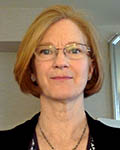 Susan J. Little, MD
Susan J. Little, MD
Professor of Medicine
Division of Infectious Diseases
Co-Director, UCSD Antiviral Research Center
UC San Diego School of Medicine
slittle@ucsd.edu
My teaching activities encompass three areas: patient-based teaching in the clinic and hospital, mentoring of students, post-doctoral fellows, and junior faculty, and classroom lecturing. I serve as Co-Director of the Antiviral Research Center, which gives me the opportunity to work with research-focused trainees at every level.
My major areas of research interest are related to the pathogenesis, prevention and treatment of acute HIV infection. I have been funded by the NIH in this field of research since 1996 and have published over 180 research papers. My current research is focused on the use of molecular epidemiologic methods to infer and characterize HIV transmission networks and the potential of prevention and treatment interventions to reduce network incidence. I am currently the PI of several NIH research grants related to acute HIV infection detection, prevention, and treatment. I also serve as Co-Director of the UCSD Center for AIDS Research Disparities Core, with the goal of increasing access to and retention in HIV care for the most vulnerable and underserved populations in San Diego County.
I serve on the UCSD Medical Ethics Committee to develop policies and educational programs to assist in reaching sound decisions about biomedical ethical issues related to patient care in the UC San Diego Healthcare System. I also serve on the San Diego County HIV Health Services Planning Group, an organization responsible for planning services for people infected and affected by HIV/AIDS and the County’s Integrated Plan Committee – also known as the “Getting to Zero” Plan for HIV Care, Prevention, Testing and Surveillance.
My clinical activities involve serving as Infectious Diseases attending on the inpatient services of the UC San Diego Hospitals and at my weekly outpatient clinic, where I care for HIV infected and at risk adults at the VA San Diego Healthcare System.
I am happy to talk to Junior Faculty about a wide range of topics including the academic review and promotion process, obtaining funding for research, and navigating the UC system.
Jess Mandel, MD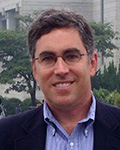
Professor of Clinical Medicine
Associate Dean, Undergradute Medical Education
UC San Diego School of Medicine
jmandel@ucsd.edu
I have taught in a variety of settings, including lectures, seminars, and the clinical environment for learners across the continuum, ranging from high school students to medical students, residents, fellows, and physicians in practice in CME and subspecialty meeting settings. As Associate Dean for Undergraduate Medical Education at UCSD, I am very familiar with medical pedagogy and curriculum, both at UCSD and elsewhere.
I have served on the Department of Medicine Committee on Academic Promotions and am very familiar with the promotion process, the different academic tracks at the University of California, and the common challenges that faculty members face.
Earlier in my career, I was quite involved in clinical research related to pulmonary hypertension. More recently, I have been involved in educational research. In addition to journal articles, I have also co-authored two books and serve on several journal editorial boards.
My experience in service on School of Medicine committees is quite extensive. I have also been heavily involved in my national subspecialty society, the American Thoracic Society, where I serve as International Conference Chair and on the Board of Directors.
I remain clinically active as part of UCSD’s Pulmonary Vascular, Hereditary Hemorrhagic Telangiectasia, and Critical Care Medicine services.
I feel that I have been largely successful in balancing the demands of professional and family life. A brief rundown of my professional path is as follows.
A native of the Chicago area, I received my Bachelor of Arts in History from Brown University in 1986, and earned my Doctorate in Medicine from Baylor College of Medicine in 1991. I served as Intern, Resident, and Chief Resident in Internal Medicine at Beth Israel Hospital in Boston, and completed fellowship training in Pulmonary and Critical Care Medicine at Brigham and Women’s Hospital.
After joining the faculty of Harvard Medical School, I served as Director of the Internal Medicine Residency Program at Beth Israel Deaconess Medical Center, and established the hospital’s Pulmonary Hypertension Center. In 2001, I joined the faculty of the University of Iowa Carver College of Medicine, where I served as Assistant Dean in the Office of Student Affairs and Curriculum, and as Co-Director of the University of Iowa Pulmonary Hypertension Program. I also directed courses in physiology and in medical humanities.
In 2006, I was appointed Associate Dean of the University of California, San Diego School of Medicine with responsibility for undergraduate medical education. In that position, I have spearheaded a comprehensive review and successful redesign of our medical school curriculum and learning environment.
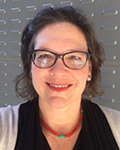 Alison A. Moore, MD, MPH
Alison A. Moore, MD, MPH
Professor and Chief
Larry L. Hillblom Chair in Geriatric Medicine
Division of Geriatrics
alm123@ucsd.edu
My teaching efforts have been primarily in the context of clinical care of older adults. Over the years I have taught all levels of trainees. Currently I am course director for MED 410 a 3rd year medical student elective introducing them to geriatrics, and am one of the ACA preceptors (first and second year medical student ambulatory experience). I also give lectures in local and national venues, primarily on my main topic of research, alcohol and aging. Of course, I also mentor research-focused trainees at all levels. I currently have a K24 from NIAAA which enables me to spend time mentoring.
I was primarily a researcher when I started my career and still spend a fair amount of time in research activities. I work in the area of alcohol and other substance use and misuse, focused on older adults and diverse populations. I have conducted mostly epidemiologic and intervention studies on this topic. I have been funded by NIH for many years with both K and R awards. Until I came to UCSD last year, I had been the Principal Investigator on an NIA T35 to foster interest among medical students in aging research and lead the Mentorship Core for two NIH P30 programs. I have published many research papers, book chapters and recently edited a book, usually in collaboration with trainees.
I serve on an NIH study section and on an advisory committee for an NIH-award for future leaders in aging research. I review manuscripts for several journals and am active in the American Geriatrics Society. At UCLA, I was chair of one of its five IRBs focused on public health research. I am on the Department of Medicine Cabinet here.
I have a small primary care practice and see patients in clinic 1- 2 ½ days weekly now. Prior to coming to UCSD last year I also attended for eight weeks a year on inpatient geriatrics service and took call for our group which included ambulatory and skilled nursing facility patients.
I didn’t have great local mentorship so I had to reach out to others in different institutions to get mentorship for my area of research and also for career mentorship so, as I have ascended the ranks of academia, I have made it a priority to mentor others in all sorts of ways to succeed.Given my personal experience, I advise others to seek out instrumental support and a mentorship team who can best help you succeed. Most of the time people will help and sometimes they won’t, but if you don’t ask you won’t get help. A second message it that you don’t have to excel in all aspects of the career path you choose. For example, I am a pretty successful researcher but have always struggled with statistics. I utilize my strengths and get help with my weaknesses to make it work.
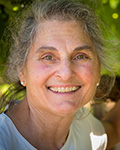 Elaine Muchmore, MD
Elaine Muchmore, MD
Professor of Clinical Medicine
Vice Chair, Educational Affairs
Department of Medicine
Divisions of Hematology-Oncology and Blood and Marrow Transplantation
Email
emuchmore@ucsd.edu
Graduate medical education standards and evaluation. I have taught a variety of UCSD courses, including first year Hematology, but my main focus has been in graduate medical education (residents and fellows). I provide case-based discussion for multiple clinical conferences. I have concentrated on development of novel curricula for residents and fellows. I have also worked to develop evaluation tools for both trainees and supervisors that are clear and consistent with standards set by accreditation bodies.
My scholarly contributions have been in two areas. The first area is to investigate the molecular regulation of a non-human sialic acid, to which non-vegetarian humans develop antibodies. The second is optimization of the graduate medical education training environment and its evaluation. I have published more than 50 articles, and serve as ad hoc review for several journals.
The main committee at UCSD is the Graduate Medical Education Committee. Nationally, I am active in the American Society of Hematology, at which I have served on most committees. My major association there has been on the “Committee on Training,” which oversees most of the fellowship awards, the Trainee Council, and development of curricula and standards for Hematology fellows. I also serve as the Chair of the Alliance for Academic Internal Medicine “Resident to Fellow Interface Committee”. I am on the ACGME Residency Review Committee for Internal Medicine.
I have been at UCSD since my fellowship in Hematology/Oncology. My husband and I raised our children in San Diego, and have felt connected to the community for more than 30 years.
When I came to UCSD, I realized that academic life was more difficult to navigate than I had appreciated. There were many layers of “bosses” who were anxious to assign me membership on various committees and various administrative tasks. And, there were few faculty members who seemed interested in lobbying on my behalf. I did sort through things, sometimes with one step forward, two steps back. However, having gone through this I am left with the strong desire to help people joining the department now.
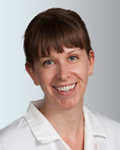 Rebecca E. Sell, MD
Rebecca E. Sell, MD
Associate Clinical Professor
Medical Director, Resuscitation
Pulmonary and Critical Care Medicine
Associate Program Director
Internal Medicine Residency Training Program
rsell@ucsd.edu
As one of the associate program directors for the Internal Medicine Residency program, I play an active role in resident education. I give didactics, supervise trainees in patient care, participate in resident and fellow conferences and am responsible for simulation training and curricular development. I also participate in medical student teaching through PBL and OSCE.
Although a clinician-educator, I have several research interests. I work in quality improvement and outcomes research with a focus on inpatient resuscitation (cardiac arrest, rapid response, stroke and sepsis). I have various ongoing research projects with residents and fellows and mentor them in case reports, abstracts and published articles.
I serve on and lead several active committees including the UCSD Code Blue Committee, the VA Critical Care Multidisciplinary Committee, the UCSD Sepsis committee, UCSD mortality committee, Division peer review, the VA Resuscitation committee, the internal medicine residency Clinical Competency Committee (CCC) and the Clinical Competency Improvement committee for resident remediation. I also work with our residency program and a core group of faculty with a focus on resident well-being, and coordinate the Advancing Women in Medicine group. I am part of a Department of Medicine minority task force designed to improve diversity.
I have approximately 7 months of clinical time yearly including VA pulmonary consults, VA ICU, and UCSD Hillcrest ICU.
I first came to UC San Diego in 2003 for residency training and have been here ever since. I have been lucky enough to meet several great mentors and sponsors along the way, and hope you find the same.
 Davey Smith, MD, MAS
Davey Smith, MD, MAS
Professor and Vice Chair of Faculty
Department of Medicine
Division of Infectious Diseases
Associate Infectious Diseases Fellowship Director
Co-Director, Center for AIDS Research (CFAR)
Director of CFAR Translational Virology Core
University of California, San Diego
d13smith@ucsd.edu
I have taught in a variety of settings - clinical, didactics, small and large groups, and one-on-one. Each of these requires a different type of teaching style. I have found that knowing my own strengths and weaknesses in each setting has enhanced my effectiveness. In relation to my mentorship, the NIH has awarded me a K24 to train individuals in translational HIV research.
As a scholar, I have published over 200 articles. I am the associate editor of the
Journal of Medical Virology, and I have participated in a number of NIH study sections and councils. I have been continuously funded by the NIH since 2003, when I became a faculty member at UCSD. My research interests mostly involve translational HIV, including transmission and cure studies.
Dr. Smith's Publications My experience in service on committees is extensive. I have served as: the chair of the Institutional Biosafety Committee at the VA for two years, chair of DOMCAP for two years and the DOM Space Committee for one year. I am also the Vice Chair of Faculty Affairs for the Department of Medicine and the Vice Chair for the Division of Infectious Diseases. I also have a has a long track record of working with local HIV -infected and -affected communities, including facilitating the Gay Men’s Coming Out Group, participating in the San Diego County HIV Planning Council, Chairing the San Diego HIV Standards of Care Committee and being the Board President of Christie’s Place for two years (a non-profit serving HIV- infected and – affected women and families in San Diego).
I am board certified in Internal Medicine and Infectious Diseases. Most of clinical responsibilities in general medicine, HIV and general infectious diseases is at the VA. Around 25% of my time is spent on clinical activities. I enjoy these direct interactions with patients and trainees. These experiences also make me a better researcher.
The academic environment at UCSD is rich and supportive. My academic and personal achievements are directly related to the UCSD faculty and mentors who helped me along the way. I hope to pass some of that on.
Randy A. Taplitz, MD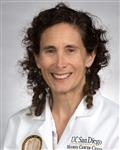
Professor of Clinical Medicine
Department of Medicine
Division of Infectious Diseases
Chief of Clinical Services
rtaplitz@ucsd.edu
In addition to the clinical service, I have enjoyed my teaching role at UCSD. I work very closely with the Infectious Diseases Fellows in the inpatient setting, as well as residents who rotate through the inpatient Thornton ID service. The Moore’s ID/Cancer outpatient clinic intermittently has residents rotate through on their outpatient months, giving me an opportunity to interface with the residency program in both the outpatient and inpatient arena In addition to teaching on rounds, I give several yearly lectures for the Core Curriculum ID series for ID fellows, as well as a lecture for the core lecture series for Heme-onc fellows on infections in compromised hosts; I have also lectured in the Pulmonary/Critical Care Fellows Core Curriculum. In the past two years I have also participated in teaching medical students in the Micro/Infectious Diseases Core Curriculum.
In addition to teaching the residents and fellows, I have had played an active role in teaching nurses, pharmacists, and respiratory technicians. In addition to lecturing in the hospital setting, I have given invited seminars at Statewide Pharmacy and Infection Control Practitioner conferences, as well lecturing in the BMT nursing curriculum, and lecture in a variety of other national venues on infections in compromised hosts as an invited speaker.
My scholarship activities at UCSD are in three major areas; in developing clinical research in the area of Transplant Infectious Disease; in developing translational research in Transplant and general Infectious Diseases; and in promoting the academic side of Hospital Epidemiology. Additionally, some of the work that I have done in collaboration with the La Jolla Institute of Allergy and Immunology has come to fruition.
Since moving to UCSD eight years ago, I have become increasingly active in clinical research. In the past several years I have initiated three investigator-initiated clinical/translational trials as PI (with funding through ACTRI and Cancer Center grants), four industry-sponsored research trials as Principal Investigator, and have been the institutional PI on two NIH-funded contracts. I publish 2-5 articles a year, and have written book chapters, requested articles and reviews.
My involvement in clinical transplant infectious diseases research has led to my invitation to serve on the Infection and Immune Reconstitution working group of the Center for International Blood and Marrow Transplant Research Group (CIBMTR). I also serve on the National Comprehensive Cancer Network (NCCN) panel, whose goal is to advance the quality, effectiveness, and efficiency of oncology care by developing and publishing practice guidelines. I am co-author on the 2015-16 “Prevention and Treatment of Cancer-Related Infections” guideline. I have also been asked to co-lead the American Society of Clinical Oncology (ASCO) committee charged with writing the Infection prophylaxis guidelines in Cancer patients in 2017. In this way, I am developing a national and international reputation, which along with my research and clinical work permits me to be in the Clinical X series.
In moving to UCSD, I accepted multiple service and committee positions. I am the Clinical Service Director of Infectious Diseases; the Associate Medical Director of Hospital Infection Control and Epidemiology; the Chair (now Co-Chair) of the Antibiotic Subcommittee (2008-present); member of the Pharmacy and Therapeutics Committee; a member of the Medicine Peer Review Committee; serve on DOMCAP (2011-present); serve on the Leadership Council, on the Nomination Committee, and on Dr. Dillman’s Medicine Cabinet. As Clinical Services Chief, I continue to work to standardize and improve the Infectious Diseases consult service and expand and improve outpatient clinical Infectious Diseases care.
In addition to the above listed service and committee work, I have been active in community and non-UCSD healthcare worker education, participating in Dine out for Life and AIDS walks, Light the Night Leukemia and Lymphoma Society walk, presenting a lecture to BMT survivors at the Leukemia and Lymphoma Society meeting, and presenting to Future doctors of UCSD undergraduate student club.
My primary goals at UCSD have been to continue to work to establish and maintain a consistent and reliable Infectious Diseases presence on the clinical service. Additionally, I wished to develop a Transplant Infectious Diseases focus for bone marrow transplant, and to foster and mentor a Solid Organ Transplant Infectious Diseases focus. In order to accomplish this, I have continued to attend on the Inpatient consult service at Thornton for approximately 5-6 months each year for the past several years. I am integrally involved in the infectious diseases issues of the BMT patients; I help guide diagnosis and therapy of infectious complications and follow the patients through their inpatient and outpatient visits. I attend the weekly BMT patient care conference and have created and update yearly guidelines for infectious diseases prevention in this patient population, and present these to the BMT group and the Antibiotic Subcommittee of the Pharmacy and Therapeutics Committee. I have worked closely with the BMT Attendings, Nurse Practitioners and Outpatient Care Coordinators in order to develop a continuum of Infectious Diseases care for this complicated population.
For the past five years, I have been the sole provider in an Infection in Cancer outpatient clinic in Moore’s Cancer Center. Patients are referred to me from throughout the Cancer Center and beyond UCSD for issues relating to prophylaxis, evaluation and treatment of infections in Cancer patients.
In my role as active clinician, I have been selected as a “Top Doc” by San Diego Magazine each year for the past four years (2013-2016), am a selected member of the UCSD Academy of Clinical Scholars, and was selected to participate in the UCSD Leadership Academy (2012-13).
On a personal note, I am married and have three children and two dogs. I enjoy hiking, traveling and reading. I feel that I might be of most use to those having questions navigating promotions, especially in Clinical X.
Services We Offer Now
- Career/Research Mentors
- Educational Seminars
- Networking Opportunities
- Community Building
Other Resources
Calendar of Events
Past Events, Memories, and Pictures
- Career Day at Feaster Charter School